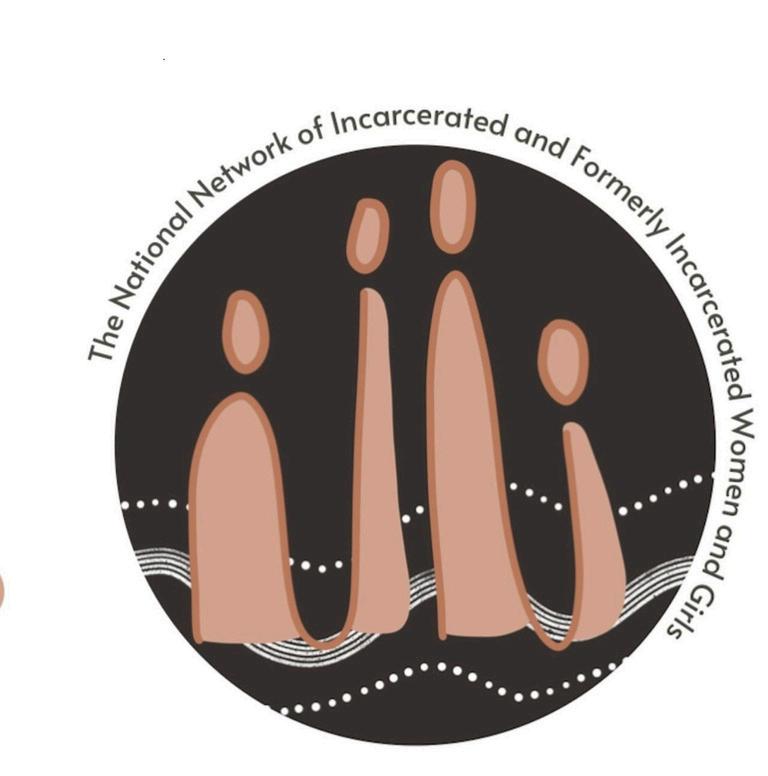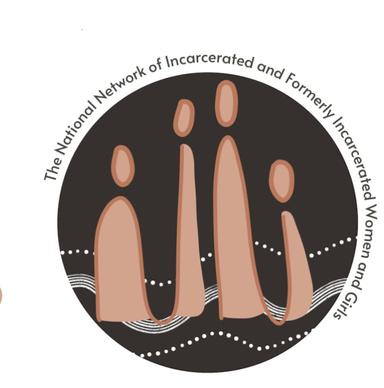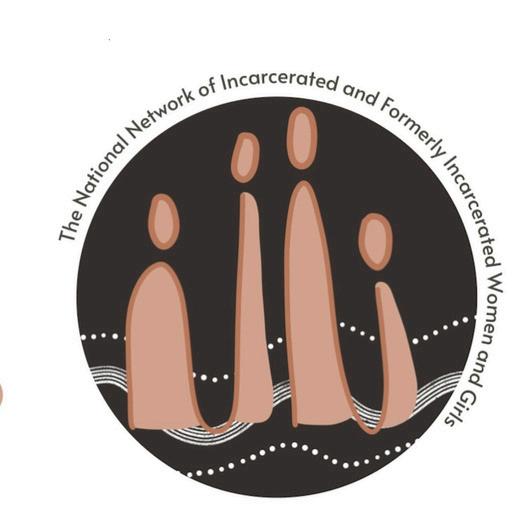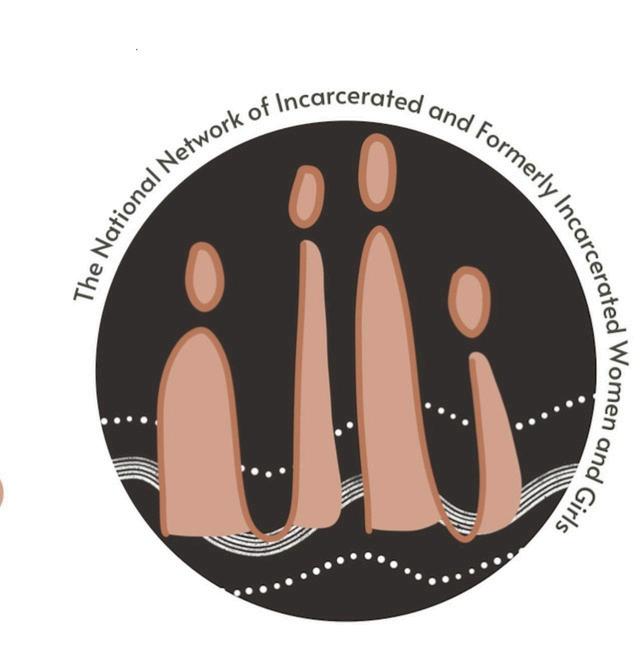

Language Guide
The National Network of Incarcerated & Formerly Incarcerated Women & Girls
‘…carceral labels compound punishment by reducing people to their worst moments, codifying stigma and haunting people for years after sentences are served.’
Hoskins&Towns[1]
The National Network found itself compelled to craft this guide on appropriate language out of a necessity to reclaim agency over the narrative surrounding our identity. Too often, the discourse about us is dictated by voices outside of our community, particularly academics, who assert authority in determining how we should be spoken of. However, the reality is that we, the members of the National Network, are the true experts on our own experiences and nuances.
This guide serves as a bold declaration of our autonomy, insisting that our voices must lead the conversation about our identities, rather than being subjected to external imposition. Additionally, the work of academics and not-for profit organisations putting out their own language guides are building on the work of the criminalised, but are not honouring this work, rather they are plundering it.
The National Network would like to acknowledge the brilliant labour of our sister, Gayle Horii [2] whose invaluable contributions have been utilised without due recognition and her efforts co-opted without the respect they deserve. We hope this guide will honour Gayle's work and serve as a testament to her enduring legacy within our community.
…our words are not without meaning, they are an action, a resistance. Language is also a place of struggle.’
bellhooks[3]
bell hooks reminds us that language is a site of struggle, and they are right, language is anything but inert. Voice and representation are critical: who is speaking, to whom are they speaking, the language used, the discourse is all critically important. Language has power; and has the capacity to constrain, restrain, and be weaponised. Language is not without effect, and to this end, language can be a form of violence especially when weaponised by the State; not to mention the labels that are used against the criminalised which further stigmatize an already stigmatized population.
Labels are good for jars, not people.
We often overlook the profound impact of language, yet the consistent use of dehumanising labels exact real and tangible harm. Much of the terminology used to describe us and our experiences as criminalised people perpetuates a paradigm that removes our humanity and reduces us to a single experience rather than acknowledging our shared humanity The choice of words matter when describing people who have been incarcerated or convicted of offences because dehumanisation begins with language, which leads to a lack of compassion and an increased propensity for violence (or at least the capacity for so-called ‘good people’ to look the other way when violence is metered out against us). Person-centred language leaves behind outdated system labels. However, in so called Australia, those with the power to reshape the narrative remain either ignorant of the harm or complicit in perpetuating it. We are not ‘offenders’, we are people. Words such as ‘offender’ create a paradigm where we as people are removed from the equation, defined by a single experience instead of who we are as fellow humans. Integrating terms such as ‘formerly incarcerated person,’ ‘or ‘person on parole’ into our lexicon, prioritises personhood and humanity, rather than reducing a person to their ‘offence’.
‘It is through language that the process of dehumanization becomes acceptable just as ‘the process of humanization is not founded in the conscious production of the necessities of life (Marx) or in the use of tools (Rousseau), but rather in the use of language’’ Horster[4]
The language used to talk about people who are incarcerated reflects personal perspectives and biases whether conscious or unconscious. This language also plays a significant role in shaping attitudes, influencing how criminalised people are granted or limited access to services Consequently, defining people solely by the crimes for which they were convicted (eg: drug dealer, murderer, rapist, sex offender, paedophile) or by their legal status (eg: illegal immigrant), and using moralistic language pertaining to substance use (eg: druggie) or employment (eg: prostitute, hooker) is counterproductive to fostering respectful interaction.
The criminalised community is as diverse as the broader community - we are not a monolith; therefore, everybody experiences language uniquely, and there is no universal approach to guarantee the correct application of terminology to describe us or our experiences. Self-identifying terminology is both crucial and nuanced, however, certain overarching principles can guide us in reflecting on whether our speech is appropriate and respectful
Please bear these considerations in mind while reviewing the language recommendations provided.

Language Guide
The following terms build on the work of Gayle Horii, and other formerly incarcerated people. We indeed stand on the shoulders of giants.
PREFERRED TERM/S RATIONALE
Person in Prison
Person in custody
Incarcerated Person
Prisoner
Criminalised
Cell Cage
Formerly incarcerated
Person with lived experience of incarceration
These are the correct terms to describe a person locked in a cage or cell within a facility not of one's choice and whose quality of existence therein depends upon the keeper/s
While many would argue that the term prisoner is a dehumanising label and should be avoided We argue that imprisoning people is dehumanising in itself To choose a passive term like ‘justice involved person’ to describe our status lets the system off the hook. It sanitises our experience and suggests that the system is just a government department ‘doing their job’, rather than being the death squad enforcing colonial law with both violence and brutality We are caged and imprisoned, therefore, we are prisoner
As always, it is up to the criminalised person what terminology they feel most comfortable with The burden is on the non-criminalised person to seek out the preferred term of the person/people they are referring to rather than on criminalised people to accept offensive language use.
We use the term criminalised to acknowledge that people have been subjected to the criminal punishment system emphasising that it is an experience endured rather than a defining aspect of identity This distinction prioritises humanity and acknowledges the systemic forces at play in our interaction with the law
A prisoner does not live in one's ‘house’, ‘home’ or ‘room’ it is a cell One always has the key to one's house and has the freedom to enter and leave at will, the right to refuse entry to anyone and the reasonable expectation that it is at all times a safe place, this is why it is called a cell
Using these terms rather than names such as exprisoner emphasises a person’s status after release highlighting their transition beyond the prison system and acknowledging their identity beyond their time served It focuses on the present condition rather than solely on their past involvement with the criminal punishment system, promoting dignity and facilitating reintegration into society
WHAT NOT TO USE
Not inmate: an inpatient of a mental hospital who may or may not have voluntarily entered the institution
Not client: a person who has purchased the services of a chosen deliverer, is a patron of the one hired and/or is an outpatient-- someone who chooses to be a client The term resident is also an obvious corruption.
Not offender
No ‘justice system involved’, or ‘justice impacted’ , or ‘justice involved’ person
Not girls: we are adults and we are grown women
Imprisoned
Incarcerated
Jailed Caged
Terms such as imprisoned are preferred over managed when referring to people incarcerated within prisons because it accurately reflects the loss of freedom and autonomy experienced by those incarcerated While managed may suggest a degree of control or organisation within the prison system, it fails to capture the coercive and restrictive nature of imprisonment Using Imprisoned highlights the involuntary confinement and deprivation of liberty endured by people in prison
Not criminal, felon, thug, convict, con
Not Justice Involved Person, Justice Impacted Person

Not home, house, room
Not ex-prisoner, former inmate, ex-crim, ex-con, parolee, ex-offender, convict
Not managed, treated (or in treatment)

Language Guide
The following terms build on the work of Gayle Horii, and other formerly incarcerated people. We indeed stand on the shoulders of giants.
NOT TO USE
Involuntary transfer
Jail Lock-Up Prison Cage
Person who has been convicted of a crime
Involuntary transfer is a more accurate term than progress when discussing movements within prisons because it accurately reflects the lack of agency prisoners have in these situations Unlike the term progress, which implies a voluntary and positive advancement, involuntary transfer acknowledges the coercive nature of such movements, highlighting the power dynamics inherent in the prison system where people have no control over their own mobility or circumstances
Lets call it what it is!
Youth Prisons
Children’s Prisons
Children’s Cages
Kids cages
Prisons
The term offender perpetuates the justification for actions taken against people in prison under the guise of legality However, the term offender describes someone currently committing an offence, whereas a person in prison has typically already been convicted and their so called offence is in the past Using this label enables ongoing justification for mistreatment and maintains power imbalances
Using terms like Youth Prisons or Children’s Prisons instead of youth detention centres is more accurate because it acknowledges the reality that these facilities function in the same way as adult prisons, subjecting children to carceral environments Referring to them as detention centres downplays the severity of the conditions and experiences within these institutions, obscuring the fact that they essentially operate as prisons for children.
Punishment is not treatment Enhanced Security Units and/or special needs units do not provide treatment but rather administer punishment through segregated or solitary confinement in fortified sensory-deprivation cells The conditions in these units do not facilitate programs, and prisons are not objective medical or psychiatric facilities
Not progress
Not therapeutic interventions
Not detention

Not Institution: attempts to civilise the prison since it brings to mind other familiar institutions like hospitals, the family, marriage, etc Institution is used to normalise and sanitise the experiences of imprisonment, clearly not "normal" at all
Not Corrections - Prisons do not “correct”
Not Reformatory – Prisons do not ‘reform’ the individual
These are not mere ‘detention’ spaces
Not offender, crim, criminal, felon, convict
Not Detention Centres, Therapeutic centres, Youth Training centres
Not enhanced security units, special needs units, correctional centres detention centre treatment units

Language Guide
The following terms build on the work of Gayle Horii, and other formerly incarcerated people. We indeed stand on the shoulders of giants.
PREFERRED TERM/S RATIONALE
Recriminalisation
Sex Worker
The term recriminalisation emphasises the process by which people are subjected to further criminalisation by the system itself, through policies and practices that perpetuate cycles of incarceration and marginalisation. It denies the structural inequalities and punitive measures that hinder their reintegration into society
Terms such as hooker and prostitute carry historical stigma and fail to recognise sex work as a legitimate form of employment
WHAT NOT TO USE
Not recidivism
This term ignores systemic barriers and focuses solely on individual behaviours
Not hooker, whore or prostitute
Person on Parole
People who use drugs
Person who uses [substance(s)]
Person in recovery abstinent
Using person on parole rather than parolee emphasises the individual's identity and humanity over their past The term parolee carries a stigma and defines a person solely by their status as someone who has been released under supervision Person on parole shifts the focus away from the person’s past actions and instead recognises them as a person deserving of dignity and respect while they reintegrate into society
Using terms such as ‘drug addicted’ dehumanises people who use drugs, reduces them to their substance use, reinforcing negative stereotypes and judgement By using person-first language, we emphasise the individual's humanity and focus on their experiences rather than labelling them based on their drug use
Terms such as ex-user and former junkie categorise individuals based on their illness or actions rather than prioritising their individuality, which can be perceived as dehumanising
Not Parolee or Probationer Not Offender
Person with previous convictions
Using person with previous convictions instead of re-offender shifts the focus away from past actions and emphasises the persons current status Re-offender carries a stigma, judging someone on their past mistakes, perpetuating negative stereotypes and hindering their reintegration into society Person with previous convictions acknowledges a person’s past while respecting their humanity
Not junkie, addict, drug addict, drug addicted, drug abuser, alcoholic, alco

Not ex-user, former addict, former junkie
Not re-offender
A final word...
There has been a growing movement of terminology being employed for us, but not by all of us. While language is personal and contextual, and acknowledges the some terms that are preferred by some, may be stigmatising to others, the National Network absolutely reject the following terms:
JUSTICE INVOLVED

The term ‘Justice involved’ is criticised for its passive connotation, which sanitises the experience of criminalised people By framing criminalisation by the criminal punishment system as merely a neutral or routine occurrence, it fails to acknowledge the profound impact and systemic injustices inherent in such experiences. As a result, alternative terms that more accurately reflect the gravity of the experience are preferred.
PERSON EXPERIENCING THE CRIMINAL JUSTICE SYSTEM
The phrase ‘person experiencing the criminal justice system’ is rejected because it inaccurately portrays individuals as passive recipients of the system, when in reality, they are subjected to it involuntarily This term fails to capture the coercive and traumatic nature of interactions with the criminal punishment system, which involves arrest, prosecution, and incarceration without the individual's consent or control. Using language that accurately reflects the involuntary nature of these experiences is essential for recognising the systemic injustices inherent in the criminal punishment system and advocating for abolition of a cruel and brutal system
CRIMINAL JUSTICE SYSTEM
There can be no justice in an unjust colony. We refer to this system as the ‘criminal punishment system’ or ‘criminal injustice system’
SYSTEM IMPACTED
We object to the use of the term system impacted because it implies a passive experience, suggesting that individuals are merely affected by the system rather than acknowledging the active role of systemic forces in shaping their lives.
The National Network is an abolitionist organisation, and we argue that changing terminology alone does not equate to transforming the underlying cruel, brutal and too often deadly carceral system. Simply altering terminology within the departments of so-called corrections, in community service organisations or in media outlets does not guarantee improved conditions for criminalised communities.
The only road to liberation for us all, is abolishing the system that harms us, however, we do this until we free us.
QUICK REFERENCE GUIDE
National Network of Incarcerated Women & Formerly Incarcerated Women & Girls
USE THIS... INSTEAD OF THIS...
Person in Prison
Person in custody Incarcerated Person Prisoner
Criminalised
Cell Cage
Formerly incarcerated
Person with lived experience of incarceration
Imprisoned Incarcerated Jailed Caged
Involuntary transfer
Jail Lock-Up Prison Cage
Person who has been convicted of a crime
Youth Prisons Children’s Prisons
Prisons
Recriminalisation
Sex worker
Person on Parole
Person who uses drugs
Person in recovery
Person with previous convictions

Inmate, Client, Offender, Girls, Justice Involved Person, Justice Impacted Person
criminal, felon, thug, convict, con, Justice Involved Person, Justice Impacted Person
home, house, room
ex-prisoner, former inmate, ex-crim, ex-con, parolee, ex-offender, convict
managed, treated (in treatment)
progress, therapeutic interventions, detention
Institutions Corrections Reformatory Detention Centres Training Centres, Labour Prisons
offender, crim, criminal, felon, convict
Youth Detention Centres, Youth Training Centres
Enhanced security Units, Special Needs Units
Recidivism
Prostitute, whores, hookers
Parolee, Probationer
Junkie addict drug addict drug addicted drug abuser
Ex User, Former Addict
Re-offender, recidivist

The National Network of Incarcerated & Formerly Incarcerated Women & Girls acknowledge that this work is ongoing, and builds upon the decades of work by people who have gone before us. We are grateful for their labour.
REFERENCES
[1] Hoskins, D & Towns, Z (2021) ‘How the language of criminal justice inflicts lasting harm,’ The Washington Post, 25 August, < https://www washingtonpost com/opinions/2021/08/25/criminal-justice-languagebias-lasting-harm/>
[2] Horii, GK 2000, Guidelines for Advocacy, Strength In Sisterhood (SIS) Society
[3] hooks, b 2014, “Talking Back: Thinking Feminist, Thinking Black”, p 40, Routledge
[4] Horster J (1992) Political Philosophy of Human Rights
thenationalnetwork.com.au
